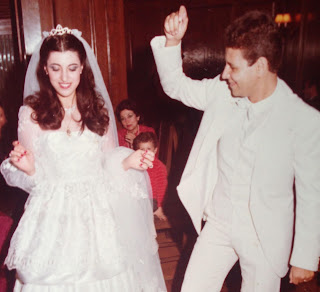What's Wrong with Me? | Salam Murabae (1978)
I want to believe that the album is, on some level, a response to, or at the very least conscious of, Egypt's newfound peace with its neighbors
As a small-town American born in the early 1960s, my introduction to Egypt was almost certainly via news of the Camp David Accords, hashed out between Menachem Begin and Anwar Sadat, with Jimmy Carter as mediator, in September 1978.
My copy of Salam Murabae (Peace Square) has a torn piece of Post-It Note stuck to it with "78" written in my handwriting, assuring Present Me that Past Me must have determined this to have been the original release year of the cassette. Unfortunately, Present Me can find no evidence of this searching anywhere online today.
I want to believe that the album is, on some level, a response to, or at the very least conscious of, Egypt's newfound peace with its neighbors (yes, plural; Egypt had also been at war with Libya).
Salam Murabae has one foot in the past, one in the present. The album opens with the title song by Sayed Mekawy (music) and Hassan Abu Etman (lyrics). Mekawy is most famous today, perhaps, for composing Oum Kalthoum's "Ya Messaharni," although he was a prolific artist credited on some 150 recordings according to Discogs, and gained initial popularity in the early 1950s.
The second track, "Ekteblena Ya Qady," sees Ahmed reaching further back into Egyptian song's legendary past, with Abd El Halim Nowera composing the music and lyrics credited to Mahmoud Ismail Gad. Nowera, who would pass away in 1983, had composed for the likes of Sayed Darwish; Gad co-wrote Abdel Halim Hafez's "Farhitna Ya Hanana" with Ali Ismail.
Flip the cassette around and Ahmed is back on familiar ground with his contemporaries Mohamed Asfour and Hassan Abu Etman ("Hady Bady Ya Nono") before calling in Ali Reda and Samir Mahboub ("El Dor El Awalany"), who had written for mid-century Egyptian Jewish superstar Laila Mourad.
I want also to believe that the choice of Samir Mahboub was no accident, that Ahmed or someone on his team knew that Mahboub had penned lyrics for not just any Laila Mourad track, but "Allemny WaAallemak" ("Teach Me and I'll Teach You"). That's because this cassette has the look, sound and feel of a concept album, and I really, really, really want that to be the case. I may very well be mistaken.
Two odd side notes:
1. "Hady Bady" is also the title of a Hasan El-Saifi film released in 1984 with a score by fellow Minyan Omar El Shariyi.
2. "El Dor El Awalany" opens with the sound of a guiro, although there is nothing -- and I mean literally nothing -- Latin about the track whatsoever.
Listen to Side A








Comments
Post a Comment